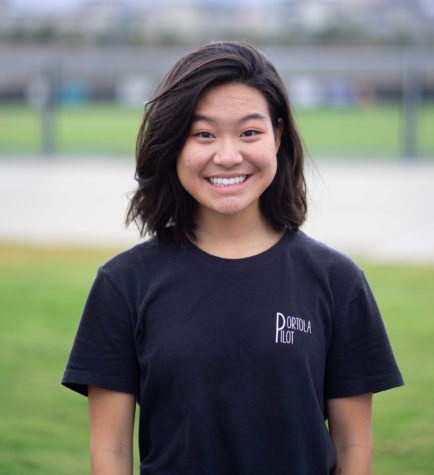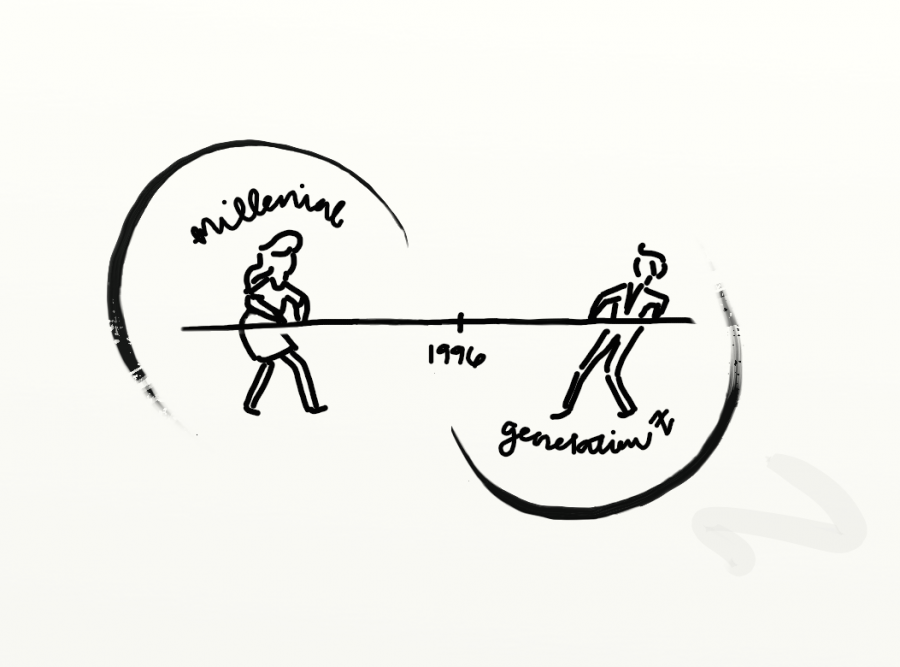Being A Part of Early Generation Z is Not a Bad Thing
With the sound of the popular catchphrase “OK Boomer,” Generation Zers and Millennials have brought the blurry lines of generational identity to the forefront.
Quizzes popping up asking the not-so-age-old question “are you Generation Z or Millennial?” confuse cuspers, people born around the end date of generations. All grade levels currently at Portola High fall roughly in-between generations and have the potential to unite generational differences instead of judging on the basis of age.
Formally, Pew Research Center defines 1996 as the start of Generation Z, yet across multiple independent articles, the date varies from as early as 1995 to as late as 2003.
Coined the “loneliness generation” by a Cigna national survey, Generation Z is characterized by people dependent on technology, as people born during this time grew up with mobile smartphones and video-streaming social media such as YouTube and Snapchat. In turn, Gen Z is commonly thought of as unfocused and more antisocial.
“Technically speaking, I’m Gen Z,” senior Dorsa Zahedi, born in 2001, said. “But, it’s not like I can’t say, ‘oh yeah, I remember when we had flip phones and went to Blockbuster. I guess I don’t like that label. It makes me think of a toddler having the newest iPhone and stuff.”
Though Gen Z is portrayed as a problematic and impulsive generation on social media, Gen Z is actually more financially intellectual, education-concentrated and optimistic than millennials, according to Pew and HuffPost. Their technologically-savvy skills are assets for emerging multi-generational jobs in the future.
By sharing cultural context in both generations, cuspers can understand both perspectives of Millennials and Gen Z and act as a mediator in generational conflicts and stereotypes. They hold a wider view remembering a time before technology dependence as well as the efficiency of technology now.
“I can understand why people don’t like Gen Z,” junior Brooke Baldwin, born in 2002, said. “We come in handy though. My mom is always asking me how to switch that or turn this… My older teammates never understand our cultural references, but they always know where to turn to.”
Whether quickly dissociating from the term or accepting Gen Z, students at the cusp of each generation have the special ability to bridge the cultural gap. Let’s hope ‘OK, Zoomer’ is not a thing of the future.
Your donation will support the student journalists of Portola High School. Your contribution will allow us to purchase equipment and cover our annual website hosting costs.

Priscilla Baek is Portola’s Media Director. She has spent five years of her life in Yemen immersed in charitable organizations. With a passion for writing...




